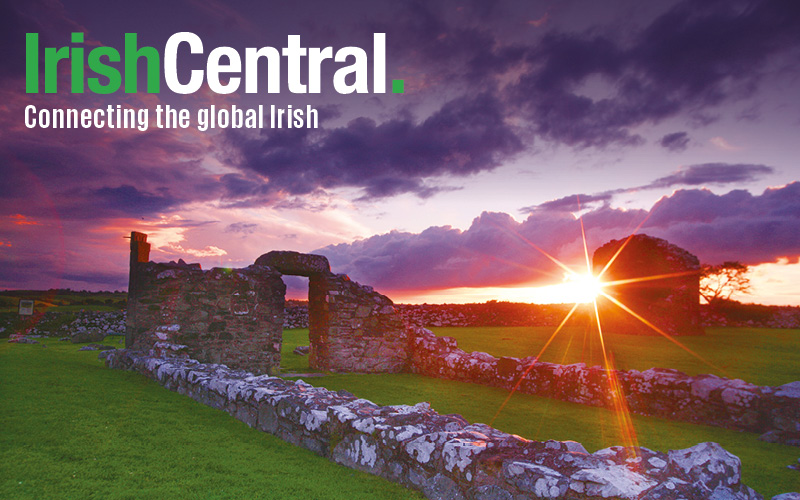The stories and significance behind Ireland’s quest for independence, the movement’s connection to World War I and its effect on Irish-Americans will be the focus of a conference for the public and campus community at UMass Lowell next month.
“Remembering 1916: The Easter Rising, The Battle of the Somme and Impact on Lowell” will explore the effect and legacy of the Easter Rising rebellion by Irish nationalists who sought to end British rule and establish an independent state. A watershed moment in Irish politics, the weeklong insurrection in April 1916 came just months before military units from Northern Ireland and Ireland – on the brink of civil war and prepared to fight each other – fought side-by-side in World War I’s Battle of the Somme in France. The battle, which lasted from July to November 1916, was intended to speed a victory for the Allies but instead became one of the deadliest military engagements in history. These developments had profound ramifications across Europe and among Irish-Americans watching events unfold from across the ocean.
More than 100 historians, archaeologists, students and Irish and American leaders will participate in the conference, which will be presented by the UMass Lowell Center for Irish Partnerships and Queen’s University Belfast on Wednesday, Sept 7 and Thursday, Sept 8 at the UMass Lowell Inn & Conference Center.
The public is encouraged to attend the event. The cost is $50 per person, including all sessions and lunch on Thursday. The registration deadline is Monday, Sept. 5. To register and for updates on the conference, visit www.uml.edu.
“With this conference, the UMass Lowell Center for Irish Partnerships continues its unique and important relationship with our colleagues at Queen’s University Belfast and around the Irish world,” said Frank Talty, the center’s co-director and assistant dean of UMass Lowell’s College of Fine Arts, Humanities and Social Sciences. “The event will examine a pivotal point in European-American relations and give us an opportunity to rediscover our Irish heritage and its place in history.”
UMass Lowell Chancellor Jacquie Moloney will welcome guests to the conference during an opening session along with UMass President Marty Meehan, who was involved in the Northern Ireland peace process while representing Massachusetts’ 5th Congressional District from 1993 to 2007. Immediately following the opening session, William Blair will deliver the conference’s keynote address on the legacy of the historic events of 1916. Blair, manager of the Human History Department for three affiliated national museums in Northern Ireland, curated the exhibit on the Titanic at the Ulster Folk and Transport Museum.
Other sessions will explore how Irish-Americans responded to the Easter Rising, the impact of the rebellion throughout Massachusetts and the contributions of Lowell residents to both the Irish rebels’ cause and World War I.
“Lowell’s Irish community paid considerable attention to the Easter Rising,” said UMass Lowell History Prof. Robert Forrant, a conference speaker. “In the days following the insurgence, groups like the Ancient Order of Hibernians collected funds when they learned of women and children begging for food and firewood in Dublin. So-called ‘Indignation Meetings’ took place and were attended by thousands of people. Fenway Park even figures into the story.”
Speakers at the conference’s 10 sessions are scheduled to include Fionnuala Quinlan, Ireland’s consul general to Boston, and Colm Donnelly, director of the Center for Archaeological Fieldwork and senior research fellow at Queen’s University Belfast. Donnelly will discuss what the landscape of World War I’s military camps and trenches can teach about the life of Irish soldiers who fought along the Western Front in Belgium and France.
Talty will lead a program on how the events of 1916 helped forge Irish-Americans’ identity, while the conference’s final program will be a roundtable discussion covering the connections people of Irish descent have to their ancestral home.
The conference builds on UMass Lowell’s collaboration with Queen’s University Belfast, which began in 2009 when the institutions launched their Irish-American Heritage Archaeological Program. The initiative enabled students from both universities to participate in archaeological digs that took place in Lowell and in Northern Ireland. The artifacts unearthed during these excavations tell the story of the Irish laborers who constructed Lowell’s famed canal system and shed light on immigration to the Merrimack Valley from Northern Ireland and Ireland. Through the digs, students had the opportunity to work alongside historians and archaeologists in the field to complement their academic studies.
The UMass Lowell Center for Irish Partnerships also offers faculty and joint research ventures with higher-education institutions in Ireland and Northern Ireland that enhance the student experience while deepening the understanding of the historical, social and economic connections between the American and Irish people.
UMass Lowell is a national research university located on a high-energy campus in the heart of a global community. The university offers its 17,500 students bachelor’s, master’s and doctoral degrees in business, education, engineering, fine arts, health, humanities, sciences and social sciences. UMass Lowell delivers high-quality educational programs, vigorous hands-on learning and personal attention from leading faculty and staff, all of which prepare graduates to be ready for work, for life and for all the world offers.
For more information visit www.uml.edu.




Comments